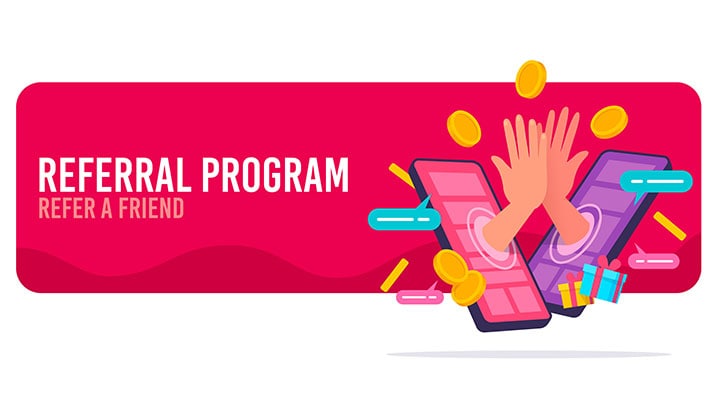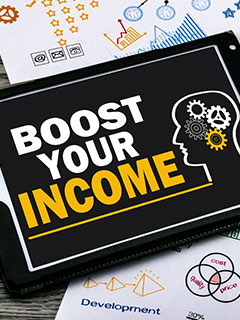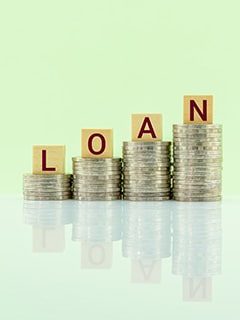CKYC Registry
-
Customer Service Contact us Service request Locate a branch
Find all the help you need
Scan the QR, get our app, and find help on your fingertips

Help CenterSupport topics, Contact us, FAQs and more
-
Login
Are you ready for an upgrade?
Login to the new experience with best features and services
-
Login
Are you ready for an upgrade?
Login to the new experience with best features and services
- Accounts
-
Deposits
IDFC FIRST Bank Deposits
View all Deposits -
Loans
IDFC FIRST Bank Loans
View all Loans - Wealth & Insure
-
Payments
IDFC FIRST Bank Payments
View all Payments -
Cards
IDFC FIRST Bank Cards
View all Cards - Blogs
- Corporate Account
-
Cash Management Services
IDFC FIRST Bank Cash Management Services
View all Cash Management Services - Supply Chain Finance
-
Corporate Lending
IDFC FIRST Bank Lending
View all -
Treasury
IDFC FIRST Bank Treasury
See more details - NBFC Financing
Support topics, Contact us, FAQs and more
- IDFC FIRST Bank Accounts
-
Savings Account
-
Corporate Salary
Account -
Senior Citizens
Savings Account -
First Power
Account -
Current Account
-
NRI Savings
Account -
TASC Institutional
Account -
Savings Account
Interest Calculator
- IDFC FIRST Bank Deposits
-
Fixed Deposit
-
Recurring Deposit
-
NRI Fixed Deposit
-
Safe Deposit Locker
-
FD Calculator
-
RD Calculator
- IDFC FIRST Bank Loans
-
Personal Loan
-
Consumer Durable
Loan -
Home Loan
-
Business Loan
-
Professional Loan
-
Education Loan
-
New Car Loan
-
Pre-owned Car Loan
-
Two Wheeler Loan
-
Pre-owned Two
Wheeler Loan -
Commercial Vehicle
Loan -
Gold Loan
-
Loan Against Property
-
Loan Against Securities
-
Easy Buy EMI card
-
Personal Loan
EMI Calculator -
Education Loan
EMI Calculator -
Home Loan
EMI Calculator -
EMI Calculator
-
Personal Loan Eligibility Calculator
- IDFC FIRST Bank Wealth & Insure
-
FIRST Select
-
FIRST Wealth
-
FIRST Private
-
Mutual Funds
-
Sovereign Gold Bond
-
Demat Account
-
Term Insurance
-
Life Insurance
-
Health Insurance
-
General Insurance
-
Bonds
-
Loan Against
Securities -
Portfolio Management
Service
- IDFC FIRST Bank Payments
-
FASTag
-
Credit Card
Bill Payments -
UPI
-
Funds Transfer
-
Forex Services
-
Pay Loan EMI
- IDFC FIRST Bank Cards
-
Ashva :
Metal Credit Card -
Mayura :
Metal Credit Card -
FIRST Millennia
Credit Card -
FIRST Classic
Credit Card -
FIRST Select
Credit Card -
FIRST Wealth
Credit Card -
FIRST WOW!
Credit Card -
Deals
-
Debit Cards
-
Co-branded Cards
-
Credit Card
EMI Calculator -
FIRST Corporate
Credit Card -
FIRST Purchase
Credit Card -
FIRST Business
Credit Card
- Premium Metal Credit Cards
-
AshvaLifestyle1% Forex₹2,999
-
MayuraLifestyleZero Forex₹5,999
-
FIRST PrivateInvite Only
- Best for travellers
-
MayuraZero ForexMetal₹5,999
-
Ashva1% ForexMetal₹2,999
-
FIRST WOW!Zero ForexTravelLifetime Free
-
FIRST SWYPTravel OffersEMI₹499
-
FIRST Select1.99% ForexLifestyleLifetime Free
-
FIRST Wealth1.5% ForexLifestyleLifetime Free
-
Club VistaraTravelLifestyle₹4,999
-
IndiGo IDFC FIRST Dual Credit CardTravelLifestyle₹4,999
- Max benefits, Free for life
-
FIRST Classic10X RewardsShoppingNever Expiring Rewards
-
FIRST Millennia10X RewardsShoppingNever Expiring Rewards
-
FIRST Select10X RewardsLifestyle1.99% Forex
-
FIRST Wealth10X RewardsLifestyle1.5% Forex
-
FIRST WOW!RewardsTravelZero Forex
-
LIC ClassicRewardsInsuranceShopping
-
LIC SelectRewardsInsuranceShopping
- Reward Multipliers
-
AshvaLifestyleMetal₹2,999
-
MayuraLifestyleZero Forex₹5,999
-
FIRST ClassicNever Expiring RewardsShoppingLifetime Free
-
FIRST MillenniaNever Expiring RewardsShoppingLifetime Free
-
FIRST SelectNever Expiring RewardsLifestyleLifetime Free
-
FIRST WealthNever Expiring RewardsLifestyleLifetime Free
- Rewards & Credit on UPI
-
FIRST Power+FuelUPI₹499
-
FIRST PowerFuelUPI₹199
-
FIRST EA₹NVirtual1% Cashback₹499
-
FIRST DigitalVirtualUPI₹199
-
IndiGo IDFC FIRST Dual Credit CardUPITravelDual cards
- Fuel and Savings
-
FIRST PowerRewardsUPI₹199
-
FIRST Power+RewardsUPI₹499
-
LIC ClassicRewardsInsuranceShopping
-
LIC SelectRewardsInsuranceShopping
- Express and Flaunt
-
AshvaMetal1% Forex₹2,999
-
MayuraMetalZero Forex₹5,999
-
FIRST SWYPEMIOfferMAX₹499
-
FIRST MillenniaRewardsShoppingLifetime Free
- FD Backed rewarding Credit Cards for all
-
FIRST EA₹NVirtualCashback₹499
-
FIRST WOW!Zero ForexTravelLifetime Free
-
CreditPro Balance TransferTransfer & SaveReduce InterestPay Smartly
- IDFC FIRST Bank NRI Forex Solutions
-
Send money to India-Wire transfer
-
Send money to India-Digitally
-
Send money abroad
-
Max Returns FD (INR)
- IDFC FIRST Bank MSME Accounts
-
Platinum Current
Account -
Gold
Current Account -
Silver Plus
Current Account -
Merchant Multiplier
Account -
Agri Multiplier
Account -
TASC Institutional
Account -
Dynamic Current
Account -
World business
Account -
First Startup
Current Account
- IDFC FIRST Bank Business Loans
-
Business Loan
-
Professional Loan
-
Loan Against Property
-
Business Loan for Women
-
Working Capital Loan
-
Construction Equipment Loan
-
Machinery Loan
-
Healthcare Equipment Loan
- IDFC FIRST Bank Business Solutions
-
Payment Solutions
-
Tax Payments
-
Doorstep Banking
-
Point of Sale (POS)
-
Escrow Accounts
-
NACH
-
Payment Gateway
-
UPI
-
Virtual Accounts
-
As per amendment in the Income Tax Rules, PAN or Aadhaar are to be mandatorily quoted for cash deposit or withdrawal aggregating to Rupees twenty lakhs or more in a FY. Please update your PAN or Aadhaar. Kindly reach out to the Bank’s contact center on 1800 10 888 or visit the nearest IDFC FIRST Bank branch for further queries.
-
-
Most Searched
Sorry!
We couldn’t find ‘’ in our website
Here is what you can do :
- Try checking the spelling and search
- Search from below suggestions instead
- Widen your search & try a more generic keyword
Suggested
Get a Credit Card
Enjoy Zero Charges on All Commonly Used Savings Account Services
Open Account Now
The success of a business largely depends on its customers. A large customer base drives up sales and can also be a great way to promote the business, create goodwill, and invite more customers through word of mouth. This is one of the primary reasons why companies use referral programs that allow customers to refer and earn money by inviting other potential customers to the business. IDFC FIRST Bank's MyFIRST Partner Program is an excellent example of how you can build a network and earn money through a referral program.
However, as popular as these programs are becoming by the day, not many people know how they work or how to create one to their advantage. In this guide, let's talk about all there is to know about referral programs.
What is referral marketing?
Marketing is a significant concern for every business. When a company creates a product or service, it has to make sure that customers get to know about it. This is done through advertising and marketing the product. Now, an enterprise may use several types of marketing strategies. One of them is referral marketing.
Referral marketing is a strategy used by businesses that encourage existing customers to invite more people to the company. It is also popularly known as the word of mouth marketing that uses traditional methods like interaction and persuasion to attract more consumers. As simple as it sounds, referral marketing has been an extremely useful and effective tool for many companies.
What is a referral program?
As explained above, referral marketing happens through word of mouth. In a referral program, an existing business customer is often rewarded every time they invite a new customer to the company. Such a program is also known as a refer and earn program because every time a customer invites a new customer, the former is offered an incentive.
Referral programs can differ based on the nature of the business. For instance, in the case of the IDFC FIRST Bank's MyFIRST Partner Program, the referral program can help one reach out to a larger customer base and help them resolve their financial issues by securing a personal loan from the IDFC FIRST Bank. In return, you, as the IDFC FIRST Bank's MyFIRST Partner, get to earn 1.5% of the disbursed loan amount.
READ MORE
Why are referrals important?
Referrals thrive on creating positive affirmations. When a business rewards a customer or when a customer gains benefit from it, like in the case of the IDFC FIRST Bank's MyFIRST Partner Program, they are more likely to tell others about it. This pushes the happy customer to spread the word and invite their friends, family, and peers to use the business' products. Additionally, people are far more likely to believe their family members or friends than impersonal advertisements on newspapers, televisions, and social media.
Referral marketing is one of the most impactful tools anyone can use to create awareness of their offerings and build a solid customer base. It is also cost-effective and benefits both the customer and the business – a win-win situation for all parties.
What are the different types of referrals?
There are three types of referrals. Let's check what these are and how they differ from one another.
1. Direct referrals
As the name suggests, a direct referral is when an existing customer refers new people to the business. These people are in search of a similar product, and they are introduced to the company through the referral in a seamless manner. Direct referrals may or may not reward the customer for each referral. In fact, most direct referrals result from genuine customer satisfaction when customers introduce the product to their friends out of pure will.
2. Reputation referrals
Often, companies with good reputations are able to attract customers based on their brand name. As a result of a stellar reputation and presence in the market, customers who may not have tried the products may also end up recommending them to others. This is common in the case of luxury items, cars, and others.
However, it may be hard for businesses to reach a point where such organic referrals can benefit them. Very few companies enjoy such an impressive reputation in the market that can takes years to build.
3. Incentivised referrals
This is the most widely adopted marketing strategy by most companies. This type of referral works based on referral earning, where an existing customer invites a new customer in return for an incentive or reward, such as a commission, bonus, gift, cashback, or discount. Some incentivised referrals may also reward the new customer with a discount. This can differ for each company according to the product or service.
Since these referrals have earning potential, most customers are happy to join such programs.
How does a referral program work?
A referral program allows customers to earn money by referring. Here's how a traditional referral program works:
- A business asks its existing customers to become brand advocates or ambassadors for its products and services by joining its earn and refer program.
- Each customer who joins the referral program is given a unique code or link.
- Every time the customer invites a new customer to the company, they share this code or link with them.
- The code or link is scanned, and for every new customer, the existing customer gets a commission.
Since every referral program works differently, you must understand them before opting for one. With money earning apps like the IDFC FIRST Bank's MyFIRST Partner App, you get a flat payout of 1.5% for every personal loan disbursal through a referral. So, every time you refer a friend, family, or anyone you know, you earn money. Furthermore, the registration is free, takes under 5 minutes, and you can earn Rs. 50,000 or more every month by referring other people.
This can be a great source of income without any investment. Moreover, since the payouts are released weekly, you have nothing to worry about and can enjoy your money as soon as you earn it.
How can you create a referral program?
Here are the steps to creating a referral program:
1. Create a product or service
The first step is to create a product or service that you want to sell. You can create a referral program based on the product or service. For instance, tangible products may work well with discounts as referral earnings. However, services may find commissions a better way to incentivise customers.
2. Get to know your customers
Understanding your customer base will help create a program that consumers find appealing. For instance, if students or youngsters form a significant part of your customer base, a program that offers commissions may appeal to them as most students are looking for a source of income while pursuing studies.
3. Set incentives
You can set an incentive-based on your product and customers, such as a discount, commission, etc.
4. Invite existing customers
Start inviting your existing customers to your program and enjoy the new customers coming your way!
Referrals can help customers earn money and businesses expand their reach. They are undoubtedly an asset for both. If you want to enjoy their benefits and start earning money, you can make use of money earning apps like the IDFC FIRST Bank's MyFIRST Partner App. Simply download, refer people for personal loans, and start earning on every disbursal.
Disclaimer
The contents of this article/infographic/picture/video are meant solely for information purposes. The contents are generic in nature and for informational purposes only. It is not a substitute for specific advice in your own circumstances. The information is subject to updation, completion, revision, verification and amendment and the same may change materially. The information is not intended for distribution or use by any person in any jurisdiction where such distribution or use would be contrary to law or regulation or would subject IDFC FIRST Bank or its affiliates to any licensing or registration requirements. IDFC FIRST Bank shall not be responsible for any direct/indirect loss or liability incurred by the reader for taking any financial decisions based on the contents and information mentioned. Please consult your financial advisor before making any financial decision.
The features, benefits and offers mentioned in the article are applicable as on the day of publication of this blog and is subject to change without notice. The contents herein are also subject to other product specific terms and conditions and any third party terms and conditions, as applicable. Please refer our website www.idfcfirstbank.com for latest updates.























